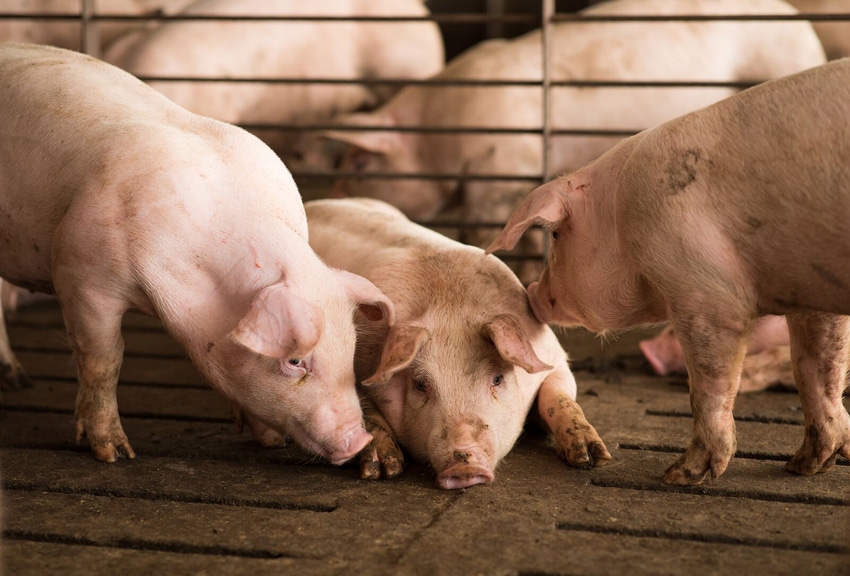UMN, K-State publish special issue on antimicrobial use in livestock
Released during the 2020 U.S. Antibiotic Awareness Week, publication highlights collaboration among academics, FDA and U.S. food animal industries.
November 17, 2020

A team of researchers from University of Minnesota and Kansas State University have partnered in a cooperative agreement with the U.S. Food and Drug Administration Center for Veterinary Medicine to develop pilot systems for collecting and analyzing antimicrobial use data from U.S. beef feedlot, dairy, swine, turkey and chicken production settings. The results have just been published in a special issue of Zoonoses and Public Health, an international journal that publishes integrated and global approaches to disease transmission and public health at the interface of human and animal health.
The USDA Center for Epidemiology and Animal Health helped develop data collection systems and perform data analysis. The project was largely funded by the FDA-CVM.
Randall Singer, DVM, MPVM, PhD, a professor of epidemiology at the University of Minnesota College of Veterinary Medicine's Department of Veterinary and Biological Sciences led the poultry project, while Peter Davies, BVSc, PhD, professor in the CVM's Department of Veterinary Population Medicine led the swine project and Michael Apley, DVM, PhD, DACVCP, professor at Kansas State University College of Veterinary Medicine, led the beef and dairy cattle projects. Sandra Godden, DVM, professor in the VPM, was a collaborator on the dairy cattle project.
Each of these projects set out to preserve the ability to use effective antimicrobials in the therapy of disease for both humans and animals. To ensure that antimicrobials are used responsibly and judiciously in animal agriculture it is important to fully understand how antimicrobials are currently used on-farm. Food animal producers and veterinarians also benefit from knowing how their current antimicrobial use compares to their peers. These goals require systems that are capable of gathering data from varying record systems, and standardizing and reporting the data in a meaningful way.
"Data collection approaches and challenges differed for each animal species, but we all succeeded in these pilot projects to create a system for gathering on-farm antimicrobial use data," says Singer. "I'm particularly proud of the poultry effort, where companies producing almost 90% of U.S. broiler chicken and almost 70% of U.S. turkey voluntarily participated."
Davies says this effort represents a true public-private partnership that he and the team hope to build upon. "I am indebted to the pioneering companies, and their staff, who devoted time and effort to advance the cause of antibiotic stewardship in the swine industry," Davies says. "I am also grateful for the collaborative spirit fostered by our partners at the FDA, and also U.S. Department of Agriculture Center for Epidemiology and Animal Health, the members of the swine industry task force, and to my colleagues working across the other species."
Godden is grateful to the veterinarian and producers who, she says, enthusiastically participated in the study. "We expect that the products of this research program should benefit not just the dairy industry as a whole, but should also aid individual producers in evaluating and advancing their own on-farm antimicrobial stewardship programs."
Singer and Davies have served on the Presidential Advisory Council for Combating Antibiotic-Resistant Bacteria, and Apley continues to serve on the Council.
Source: University of Minnesota College of Veterinary Medicine, which is solely responsible for the information provided, and wholly owns the information. Informa Business Media and all its subsidiaries are not responsible for any of the content contained in this information asset.
You May Also Like



